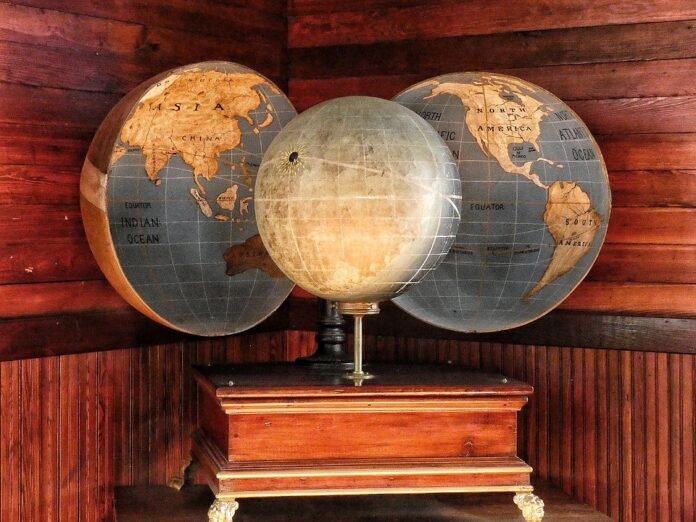Of course. Here is an article on the topic.
One World, One Internet? The Fight for Digital Freedom
In its infancy, the internet was a promise. It was a digital agora, a global village where information, ideas, and connections could flow freely across borders, unhindered by geography or government. This vision of “One World, One Internet” championed a unified, open, and accessible space for all humanity—a powerful engine for democracy, innovation, and understanding.
Today, that promise is fracturing. The dream of a single, global network is under assault, slowly being carved up into a patchwork of national and corporate fiefdoms. The fight for digital freedom is no longer a niche concern for cypherpunks and activists; it is a defining struggle of the 21st century, determining the future of speech, commerce, and human rights.
The Rise of the “Splinternet”
The most visible threat to a unified internet is the rise of the “splinternet”—a portmanteau of “split” and “internet.” This refers to the deliberate fragmentation of the internet by nation-states seeking to assert control over the digital lives of their citizens.
The pioneer and most formidable example is China’s “Great Firewall.” Far more than a simple list of blocked websites, it’s a sophisticated system of censorship and surveillance that has effectively created a parallel digital ecosystem. Within its walls, Western platforms like Google, Facebook, and Twitter are replaced by state-sanctioned alternatives like Baidu, WeChat, and Weibo. This model of digital sovereignty allows the state to control the narrative, suppress dissent, and monitor its population on an unprecedented scale.
China’s model is no longer an outlier. Russia has passed “sovereign internet” laws, giving its government the power to disconnect the country from the global web in a crisis. Iran, North Korea, and other authoritarian regimes actively curate their citizens’ online experience, creating digital echo chambers that reinforce state ideology. This trend erects digital iron curtains, replacing the free exchange of ideas with tightly controlled information corridors.
The Regulatory Patchwork
While less overtly oppressive, another force splintering the internet is the tangled web of national and regional regulations. In a well-intentioned effort to protect its citizens, the European Union implemented the General Data Protection Regulation (GDPR). While a landmark law for privacy, it created a distinct set of rules for how data is handled in Europe. Companies worldwide had to adapt, and some smaller international sites simply chose to block European users rather than comply.
This has set a precedent. Countries from India to Brazil to California are enacting their own data privacy and localization laws. While often designed to protect consumers, this regulatory patchwork creates “data borders.” It complicates global commerce, stifles startups that can’t afford legal compliance across dozens of jurisdictions, and makes the user experience inconsistent and fragmented depending on one’s physical location. The internet, once borderless, is now increasingly subject to the passport you hold.
The Corporate Walled Gardens
It isn’t just governments building walls. The very corporations that built the modern web have a vested interest in creating their own proprietary territories. The titans of tech—Meta, Google, Apple, Amazon—have constructed “walled gardens” designed to keep users locked within their ecosystems.
Think of the seamless integration of an iPhone, Apple Music, and the App Store, or how Meta’s family of apps (Facebook, Instagram, WhatsApp) create a self-contained universe for social interaction. While convenient, this model stifles the open, interoperable nature of the early web. It prioritizes platform loyalty over open standards, making it harder for new competitors to emerge and limiting user choice. The dream of navigating a vast, interconnected web is often replaced by hopping between a few dominant, enclosed platforms.
Why the Fight Matters
The fragmentation of the internet is not merely a technical or economic issue; it is a profound threat to human rights and progress.
- Freedom of Expression: For activists and ordinary citizens in repressive regimes, the global internet is a lifeline—a tool to organize, expose injustice, and access information beyond state propaganda. A splintered internet silences these voices.
- Economic Opportunity: A unified global market fuels innovation and allows small businesses to reach international customers. Digital borders create friction, increase costs, and entrench the dominance of large, multinational corporations.
- Cultural Exchange: The internet has been a powerful force for cross-cultural understanding, connecting people who would never otherwise meet. A fractured web reinforces nationalism and “us-versus-them” mentalities, shrinking our collective worldview.
The Resistance and the Road Ahead
The battle for a single, open internet is far from lost. It is being fought on multiple fronts by a dedicated coalition of technologists, activists, and policymakers.
Organizations like the Electronic Frontier Foundation (EFF) and Access Now advocate for digital rights in courtrooms and corridors of power. Technologists develop and promote tools of circumvention and privacy, such as VPNs, the Tor browser, and end-to-end encryption, which act as digital keys to unlock walled-off parts of the web. The push for decentralized technologies, like blockchain and peer-to-peer networks, offers a long-term vision for an internet that is inherently more resilient to centralized control.
The future of the internet is at a crossroads. Will it dissolve into a mosaic of national intranets and corporate silos, or can we preserve the vision of a global digital commons? The outcome depends on the choices we make now. It requires citizens to demand digital literacy and fight for their rights, companies to prioritize open standards over short-term profits, and governments to collaborate on global norms that protect both users and the network’s integrity.
The dream of “One World, One Internet” was never a guarantee; it was an ideal to strive for. The fight to keep it alive is a fight for the very soul of our increasingly digital world.

